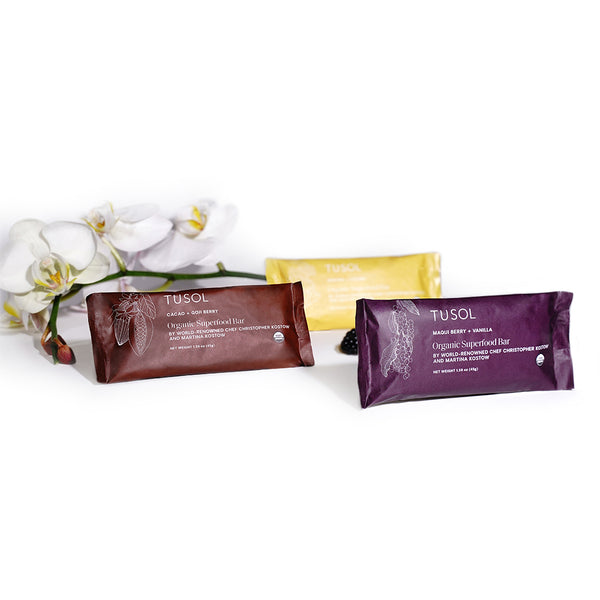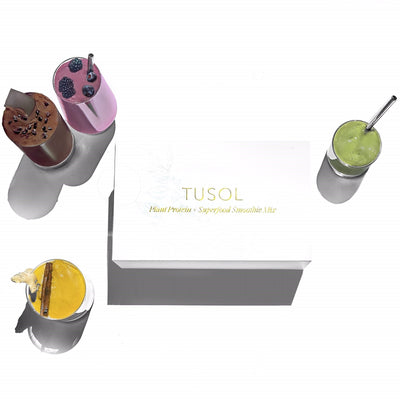In the ever-evolving world of skincare and wellness, collagen has emerged as the holy grail for maintaining youthful skin, strong hair, and healthy joints. But with an array of options flooding the market, choosing the right collagen supplement can be overwhelming. Today, we're diving deep into the collagen cosmos to compare the pros and cons of three popular types: bovine collagen, grass-fed bovine collagen, and marine collagen. Let's unravel the mystery and find out which one reigns supreme in the quest for beauty and vitality.
Bovine Collagen
First up on our collagen crusade is bovine collagen, derived from the hides and bones of cows. Here's a breakdown of its pros and cons:
Pros:
- Abundant Source: Bovine collagen is readily available and cost-effective compared to other types, making it accessible to a wide range of consumers.
- Versatility: It blends seamlessly into various recipes, from smoothies to soups, without altering the taste or texture.
- Type I & III Collagen: Known for promoting skin elasticity and reducing wrinkles, bovine collagen primarily consists of type I and III collagen, which are crucial for skin health.
- Joint Support: Studies suggest that bovine collagen may help alleviate joint pain and stiffness, making it a popular choice among athletes and individuals with arthritis.
Cons:
- Quality Concerns: The quality of bovine collagen can vary depending on factors such as the cow's diet, living conditions, and processing methods. Opting for organic or grass-fed options can mitigate these concerns.
- Allergies: Individuals with beef allergies may need to steer clear of bovine collagen supplements to avoid adverse reactions.
- Environmental Impact: The production of bovine collagen may raise environmental concerns due to factors such as deforestation and greenhouse gas emissions associated with cattle farming.
Grass-Fed Bovine Collagen
Next in line is grass-fed bovine collagen, sourced from cows that graze on pasture rather than being confined to feedlots. Let's explore its pros and cons:
Pros:
- Nutrient-Rich: Grass-fed collagen is believed to contain higher levels of nutrients such as vitamins, minerals, and omega-3 fatty acids compared to conventionally raised counterparts.
- Ethical Considerations: Supporting grass-fed collagen promotes more humane and sustainable practices in animal agriculture, contributing to animal welfare and environmental conservation.
- Enhanced Bioavailability: Some proponents claim that grass-fed collagen may have superior absorption rates due to its natural, minimally processed form.
Cons:
- Cost: Grass-fed collagen typically comes with a higher price tag compared to conventional bovine collagen, which may deter budget-conscious consumers.
- Availability: While the demand for grass-fed collagen is on the rise, it may still be less accessible in certain regions or markets compared to conventional options.
- Limited Research: Despite the potential benefits touted by advocates, scientific evidence supporting the superiority of grass-fed collagen over conventional bovine collagen is limited, warranting further research.
Marine Collagen
Last but not least, we have marine collagen, extracted from the skin and scales of fish such as cod, salmon, and tilapia. Let's weigh its pros and cons:
Pros:
- Type I Collagen: Marine collagen predominantly consists of type I collagen, which closely resembles the collagen found in human skin, making it highly effective for improving skin elasticity and hydration.
- Bioavailability: Studies suggest that marine collagen may have superior bioavailability and absorption rates compared to bovine collagen, thanks to its smaller molecular size and unique composition.
- Low Allergenic Potential: Unlike bovine collagen, marine collagen is free from common allergens such as dairy and soy, making it suitable for individuals with food sensitivities or dietary restrictions.
Cons:
- Environmental Impact: The harvesting of marine collagen may raise concerns about overfishing and depletion of marine resources, particularly if not sourced sustainably.
- Fishy Taste: Some users may find marine collagen supplements to have a slight fishy taste or odor, which could be off-putting for those with sensitive palates.
- Cost: Marine collagen tends to be more expensive than bovine collagen due to factors such as sourcing, processing, and quality control measures.
Conclusion
In the battle of the collagens, each contender brings its own set of pros and cons to the table. Bovine collagen offers affordability and versatility but may pose concerns regarding quality and environmental impact. Grass-fed collagen appeals to ethical and health-conscious consumers but comes with a higher price tag and limited availability. Marine collagen boasts superior bioavailability and skin benefits but raises questions about sustainability and taste preferences.
Ultimately, the best collagen choice depends on individual preferences, dietary needs, and ethical considerations. Whether you opt for bovine, grass-fed, or marine collagen, incorporating this powerhouse protein into your daily routine can help support radiant skin, strong hair, and healthy joints. So, go ahead, choose your collagen champion, and embrace the beauty-boosting benefits that collagen has to offer!














